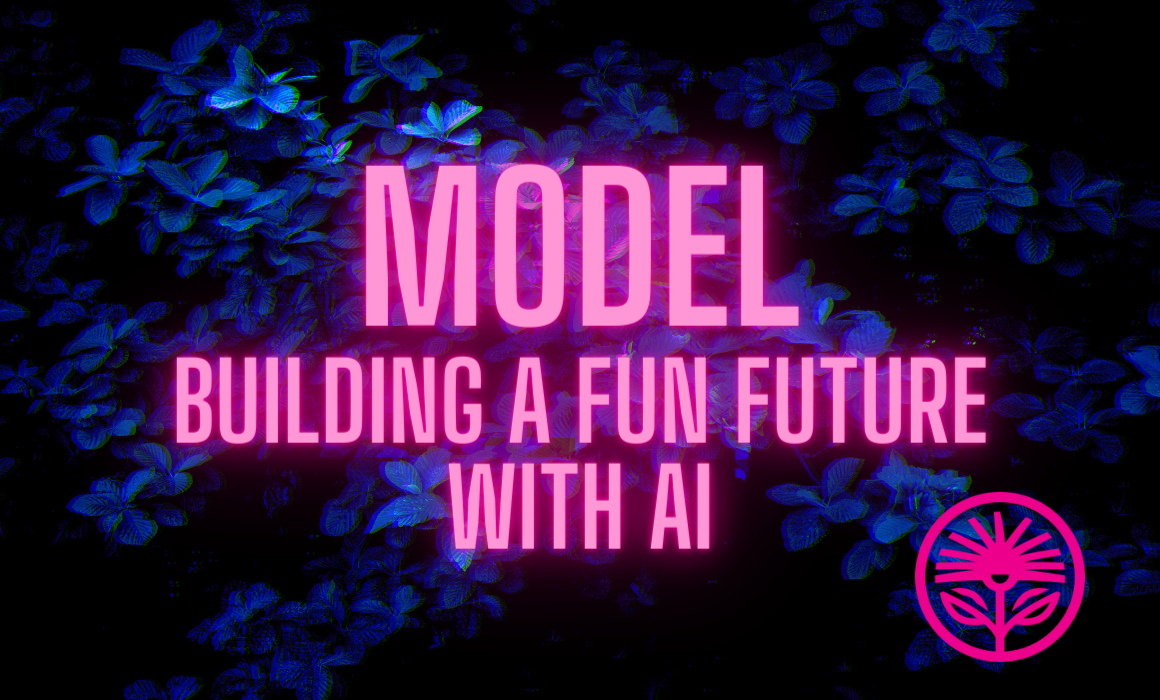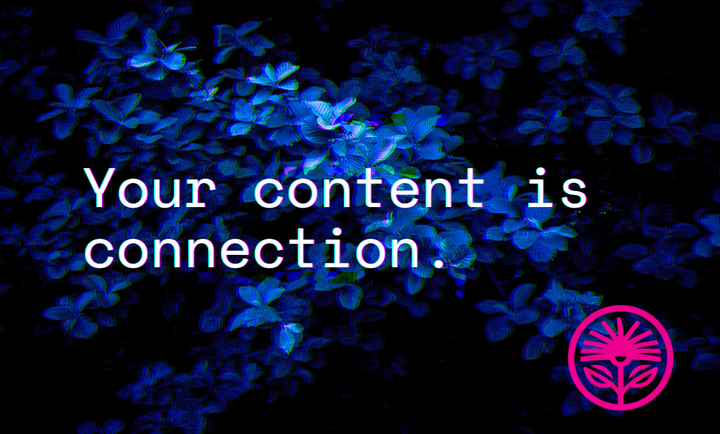Model: Building a Fun Future with AI
3 ways to make a fun future with AI.

Short summary:
- New technology is more fun when we make it fun.
- We don’t control the future, because we don’t control the market.
- But we do control how we respond to the future and the market—by having fun.
Why do I spend so much time using and learning about AI?
Why am I so obsessed with the future of this technology and its impact on my business, my clients, and my life?
I get that question eerily often—often enough to make me wonder if I’m spending too much time on it—and I always have the same answer:
Because I want to.
I don’t have to force myself to read research papers, watch in-depth technical talks, and spend hours every week customizing my own chatbots.
I can’t stop myself. Well, I don’t stop myself.
Because it’s fun.
So if you’d rather be excited than scared about new technology—AI or otherwise—that’s my whole advice:
Make it fun.
In Get It Done, Ayelet Fishbach recommends three strategies:
1) You can bundle something you do enjoy with a task you don’t—like doing your tech research while you’re sipping on your favorite mocktail.
2) You can find a fun way of doing a task you’d rather not—like learning about AI by making silly chatbots.
3) Or you can find the fun within the task itself—like focusing on the novelty of getting to collect new facts that didn’t exist before.
Whatever your path, the point is the same: Don’t force yourself, reward yourself.
Willpower is a synonym for circumstance. Change the setting and you change the challenge.
So, let’s build the future of your business in a world of AI. And let’s make it fun.
1) Focus on the Future
The first thing we have to acknowledge is that if we’re not thinking about the future, we’re not experts.
As Gary Klein pointed out in Sources of Power, the “ability to see the past and future” requires us to understand the fundamental dynamics of the system within which we operate. “The pretenders,” he says, “have mastered many procedures and tricks of the trade” but, unlike real experts, if “they are pushed outside the standard patterns, they cannot improvise.”
So, have we merely mastered procedures, or are we truly experts?
Our answer to this question gives us the answer to that one: When a new technology emerges, do we improvise, or do we ignore it?
It’s not about prediction—nobody can see the future. But some can imagine it, and can bring it to life.
And some are caught up by it, pushed along, or left behind.
The first thing we need to do, then, is to simply think about the future. We need to look at how we work and how our customers behave and imagine how that could change.
In Seeing Around Corners, Rita McGrath recommends making sure we’re observing the edges of our business and what’s happening at the periphery. “Go out of your way to include diverse perspectives,” and “foster little bets that are rich in learning.”
And, potentially most importantly, we need to “recognize when your people are in denial.” And for entrepreneurs, that person might be us.
You’re a business strategist with a particular focus on the special talents and abilities of entrepreneurs. You are always an astute observer of technology and have a particular focus on AI, large language models, natural language processing, and automation.
I’m a [insert your business/role] and my focus is on [your best client types/your unique area of focus].
Imagine it is 5 years in the future. What are the top impacts AI and emerging technology will have on me, my business, and my area of focus?
Copy and paste the output into your text document.
2) Focus on the Fun
If we’re going to focus on the future, though, we’ve got to enjoy it. Which means, to some extent, we might want to dial down the function.
It’s okay to be less productive in the moment to be more productive overall.
Doing something the fun way means you’re doing it at all.
And we can make it fun by merely paying attention to it and appreciating it for its novelty and its difficulty. That’s what makes it satisfying.
As Mihaly Csikszentmihalyi wrote in Flow, “The best moments usually occur when a person’s body or mind is stretched to its limits in a voluntary effort to accomplish something difficult and worthwhile. Optimal experience is thus something that we make happen.”
It’s up to us what we pay attention to, and where we look for the fun.
Like comedian Justin McElroy wrote, “Learning to appreciate things you don’t initially enjoy is the power to fill the world with stuff you like.”
You don’t have to dive headfirst into AI and start reading every technical paper that gets uploaded to arxiv.org.
But I do suggest paying attention to it in whatever way you find most enjoyable.
You're a high-performance coach, focused on helping business owners find the motivation to keep moving forward and keep adapting to change and emerging technology.
I'm a [insert your business/role] and my focus is on [your best client types/your unique area of focus].
My favorite hobbies are [insert a few hobbies] and my favorite type of task I do for work is [insert your favorite daily work task].
How could I learn about emerging technology like AI, large language models, natural language processing, and automation in a way I'd most enjoy while still getting benefit?
Don’t forget to copy/paste the output into your text document.
3) Focus on Yourself
In futurist Amy Webb’s book The Signals are Talking, she notes: “The future is an endless cycle. It neither begins at a finite point nor ends once something has been accomplished.”
Which means, we don’t get to stop.
But, put another way, it means we never have to stop. We get to keep learning, growing, making, being.
Your job isn’t to predict the future, it’s to build it. “Unless you write your competitor’s plans,” Al Ries and Jack Trout wrote in The 22 Immutable Laws of Marketing, “you can’t predict the future.”
And unless your competitors make your plans, they can’t predict the future either.
But, I have to say, a lot of business owners do let their competitors write their plans. They look for “best practices” (classic mistakes), they copy LinkedInfluencers and hustlers, and they think there’s safety in the crowd.
Even if the crowd is fully lost.
Instead, we’ve got to focus on what we can do. What we can learn. What we can build.
The future’s on its way—it never stops, and never has. And our business will be changed by it, transformed by it—or ended by it.
But, like L. M. Montgomery’s Anne of Green Gables put it so pointedly, “I don’t see the use of meeting trouble halfway.”
Instead, figure out what you find fun. What you can do forever.
And what you can create to build a fun future for yourself, your business, and your clients.
You're an industry analyst, with a particular focus on [insert your industry/your clients' industry].
Take the following industry trends:
- [insert future trends from first prompt output]
and combine them with my particular interests
-[insert areas of learning focus from second prompt output].
How could I carve out a unique position for myself based on what I like most and what's coming up in the future?
So, what did you get as your output?
Now, adjust and regenerate it as needed until you have a list of actions to start building your fun future with AI.
Reply to this email or send a note to labs@kelfordinc.com with your feedback and questions on this model.
Because this month on Kelford Labs, we’re talking all about AI, technology, and our ability to build a future we find fun.
Make sure you’re subscribed so you don’t miss an issue.



